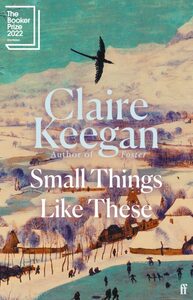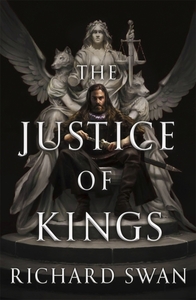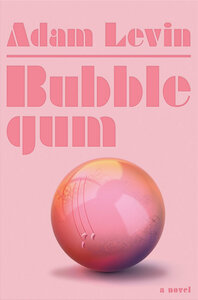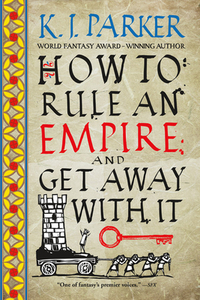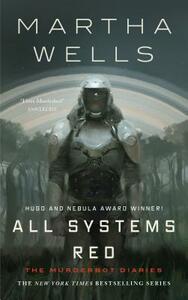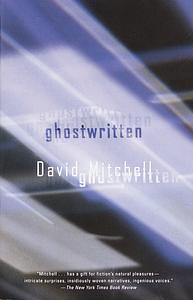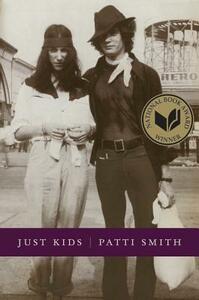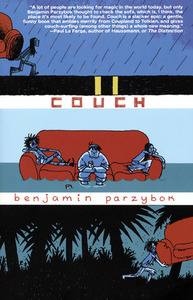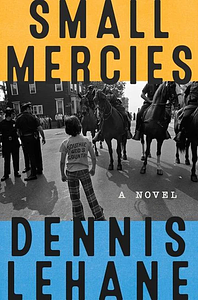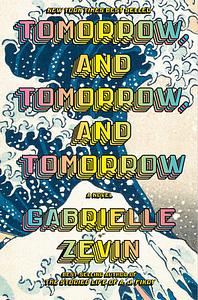You need to sign in or sign up before continuing.
Take a photo of a barcode or cover
explikator's Reviews (76)
hopeful
reflective
sad
medium-paced
Plot or Character Driven:
Character
Strong character development:
Yes
Loveable characters:
Yes
Diverse cast of characters:
Complicated
Flaws of characters a main focus:
Complicated
My favourite book 2024. Claire Keegan is a masterful writer, her language plain, but so beautiful. There's not one word that's superfluous, yet there's so much empathy and emotion in every figurative description! This is a book I will read again. And again.
adventurous
medium-paced
Plot or Character Driven:
Plot
Strong character development:
No
Loveable characters:
No
Diverse cast of characters:
No
Flaws of characters a main focus:
No
A rather average fantasy novel that would have worked in many other settings. There is magic, but less than in Star Wars.
The events are described by Helena Sedanka, the writer of Sir Konrad Vonvalt, who is a "Justice of the Emperor" and performs roughly the same function as Judge Dredd: investigator, judge and executioner in one.
A criminal case must be investigated, a world empire must fall and a lot of blood must flow.
It is all written in very routine manner, you can feel that many editors have had a hand in it. But there is nothing creative, new, unique or striking. Not even a quirk.
I was particularly annoyed by the cliffhanger announcements at the end of some chapters. "But he was wrong. Everything got worse." That is a cheap narrative trick.
The events are described by Helena Sedanka, the writer of Sir Konrad Vonvalt, who is a "Justice of the Emperor" and performs roughly the same function as Judge Dredd: investigator, judge and executioner in one.
A criminal case must be investigated, a world empire must fall and a lot of blood must flow.
It is all written in very routine manner, you can feel that many editors have had a hand in it. But there is nothing creative, new, unique or striking. Not even a quirk.
I was particularly annoyed by the cliffhanger announcements at the end of some chapters. "But he was wrong. Everything got worse." That is a cheap narrative trick.
challenging
reflective
slow-paced
Plot or Character Driven:
Character
Strong character development:
No
Loveable characters:
No
Diverse cast of characters:
No
Flaws of characters a main focus:
Yes
Belt Magnet not only has a strange name and a psychosis, he is also the only person in this parallel world - where little Mogwais, called Curios, distracted humanity from developing the Internet - who has not eaten, squashed, beheaded or crucified his own curio. Which is a thing all people do in this parallel world.
Belt's other superpower is that every character he meets spontaneously breaks out into a page-long monologue, be it a psychopathic millionaire heir who beats him up on the playground or the security guard in a bank who sells him cloth handkerchiefs.
This takes a lot of time. The printed edition in English has 1,000 pages.
Adam Levin's style is certainly unique, funny, inventive and lively. The dialogues are intelligently written and very entertaining. Of course the book can be understood as a satire on consumer culture, materialism, advertising and the health care system, but the actual intention seems to me to be therapeutic.
Just as the protagonist doesn't really manage to develop a normal interpersonal relationship - apart from with his father - I, too couldn't understand the constant stream of consciousness. As a result, no emotional connection to Belt was formed and the parts that were written for subtle feelings - touching, moving or sad - didn't reach me.
A stylistically exciting book and perhaps entertaining if you yourself are constantly in a meta-relationship with your own life.
The only thing that really bothered me was the length and the deus ex machina at the end, where the author writes himself as a character in his novel.
This takes a lot of time. The printed edition in English has 1,000 pages.
Adam Levin's style is certainly unique, funny, inventive and lively. The dialogues are intelligently written and very entertaining. Of course the book can be understood as a satire on consumer culture, materialism, advertising and the health care system, but the actual intention seems to me to be therapeutic.
Just as the protagonist doesn't really manage to develop a normal interpersonal relationship - apart from with his father - I, too couldn't understand the constant stream of consciousness. As a result, no emotional connection to Belt was formed and the parts that were written for subtle feelings - touching, moving or sad - didn't reach me.
A stylistically exciting book and perhaps entertaining if you yourself are constantly in a meta-relationship with your own life.
The only thing that really bothered me was the length and the deus ex machina at the end, where the author writes himself as a character in his novel.
adventurous
funny
lighthearted
relaxing
medium-paced
Plot or Character Driven:
Plot
Strong character development:
No
Loveable characters:
No
Diverse cast of characters:
No
Flaws of characters a main focus:
Yes
Second part of an alleged "Siege" duology. The story actually takes place in the same city, but a generation later than in "16 Ways to Defend a Walled City". But the siege is still not over.
In addition to the protagonist, the character of the city has also changed. While in "16 Ways" it still seemed Roman, in "Rule An Empire" it is more Byzantine.
Both books live from the voice of the narrator, who makes the plot palatable to us with his cynical perspective and linguistic tricks.
Cynicism is an overrated intellectual ability that is supposed to protect us from emotions. And so the protagonists do not invest any feelings in their lives, which means that the readers do not either.
The book reads smoothly and pleasantly, though you are never really captivated or excited to see what happens next. While we shared every step with the narrator on the way to the climax, the tension is built up at the end by him withholding his plan from us. That's a dissapointing narrative trick, I felt.
Nevertheless, it's a good and very individual book. If you want to be captivated by a story, live in strange worlds or simply read something new, you don't have to try "Rule An Empire".
In addition to the protagonist, the character of the city has also changed. While in "16 Ways" it still seemed Roman, in "Rule An Empire" it is more Byzantine.
Both books live from the voice of the narrator, who makes the plot palatable to us with his cynical perspective and linguistic tricks.
Cynicism is an overrated intellectual ability that is supposed to protect us from emotions. And so the protagonists do not invest any feelings in their lives, which means that the readers do not either.
The book reads smoothly and pleasantly, though you are never really captivated or excited to see what happens next. While we shared every step with the narrator on the way to the climax, the tension is built up at the end by him withholding his plan from us. That's a dissapointing narrative trick, I felt.
Nevertheless, it's a good and very individual book. If you want to be captivated by a story, live in strange worlds or simply read something new, you don't have to try "Rule An Empire".
adventurous
lighthearted
relaxing
fast-paced
Plot or Character Driven:
Character
Strong character development:
Yes
Loveable characters:
No
Diverse cast of characters:
Yes
Flaws of characters a main focus:
Yes
The famous Murderbot: Only 150 pages that are quite relaxing to read. A bit of Nostromo, a bit of Monk and a bit of O.K. Corral.
Maybe I'm no longer used to such fast-paced books, but in general I would have been more interested in the other characters and the mood that existed among them.I would also have been interested in the fact that the malfunctions in the map software are caused by the ruins of a vanished civilization- but that only happens in an aside.
Otherwise there is nothing to complain about, but also no hymns to sing.
Maybe I'm no longer used to such fast-paced books, but in general I would have been more interested in the other characters and the mood that existed among them.
Otherwise there is nothing to complain about, but also no hymns to sing.
adventurous
challenging
slow-paced
Plot or Character Driven:
Character
Strong character development:
Yes
Loveable characters:
Complicated
Diverse cast of characters:
Yes
Flaws of characters a main focus:
No
A book that is actually made up of nine short stories and an epilogue.
Important events in the lives of nine completely different people are told. As you read on, you start to see connections, even a web of connections which becomes more and more dense, until in the ninth chapter you get the impression that Mitchell had a big plan for a big plot and we have just uncovered it.
But I didn't get that feeling. And the big ending was far too big for me for the not-so-big stories. The construction seemed too forced.
That said, the book was still a reading experience. Mitchell manages to effortlessly let the reader slip into different characters and masterfully adapts his style, vocabulary and narrative rhythm. Every person feels like they are made of flesh and blood and the characters who are not still remain plausible.
I liked the fourth chapter the most, which follows the life of a Chinese woman from childhood in pre-Mao times to the modern day. The most compelling read was certainly the ninth chapter, entirely in dialogue form, even if the revelations didn't live up to their promise.
Margarita and Marco were disappointing, and I struggled through their chapters.
I enjoyed reading the book, but not so much that I had to start all over again or feel urged to binge the next David Mitchell.
Important events in the lives of nine completely different people are told. As you read on, you start to see connections, even a web of connections which becomes more and more dense, until in the ninth chapter you get the impression that Mitchell had a big plan for a big plot and we have just uncovered it.
But I didn't get that feeling. And the big ending was far too big for me for the not-so-big stories. The construction seemed too forced.
That said, the book was still a reading experience. Mitchell manages to effortlessly let the reader slip into different characters and masterfully adapts his style, vocabulary and narrative rhythm. Every person feels like they are made of flesh and blood and the characters who are not still remain plausible.
I liked the fourth chapter the most, which follows the life of a Chinese woman from childhood in pre-Mao times to the modern day. The most compelling read was certainly the ninth chapter, entirely in dialogue form, even if the revelations didn't live up to their promise.
Margarita and Marco were disappointing, and I struggled through their chapters.
I enjoyed reading the book, but not so much that I had to start all over again or feel urged to binge the next David Mitchell.
emotional
inspiring
reflective
slow-paced
The love story between Patti Smith and Robert Maplethorp through the decades. Patti travels to New York with a small suitcase without any plans and meets this nice hippie in a park. They soon move in together and pursue their art projects and relationship.
Even when Robert realizes and lives out his homosexuality and both find other partners, their intense friendship remains. At some point Patti moves to Detroit, but Robert is already living with his patron there.
The report from New York in the late 1960s was interesting and how the hippie dream of Piece, Love and Understanding also had a cruel dark side. Not just Charles Manson and the murder of Sharon Tate, but also the drugs and...
I don't know exactly, but some things seem so out of place - the cult around Andy Warhol, the loneliness of Janis Joplin and Jimmi Hendrix. How the two of them and Brian Jones and Morrison die of overdoses in a short time - there is something very morbid, something very repressed and a longing for something unlived that is really painful.
The report from New York in the late 1960s was interesting and how the hippie dream of Piece, Love and Understanding also had a cruel dark side. Not just Charles Manson and the murder of Sharon Tate, but also the drugs and...
I don't know exactly, but some things seem so out of place - the cult around Andy Warhol, the loneliness of Janis Joplin and Jimmi Hendrix. How the two of them and Brian Jones and Morrison die of overdoses in a short time - there is something very morbid, something very repressed and a longing for something unlived that is really painful.
adventurous
funny
lighthearted
medium-paced
Plot or Character Driven:
Plot
Strong character development:
Yes
Loveable characters:
Complicated
Diverse cast of characters:
No
Flaws of characters a main focus:
No
dark
emotional
sad
tense
fast-paced
Plot or Character Driven:
Plot
Strong character development:
Yes
Loveable characters:
Yes
Diverse cast of characters:
Yes
Flaws of characters a main focus:
Yes
emotional
hopeful
inspiring
lighthearted
sad
medium-paced
Plot or Character Driven:
Character
Strong character development:
Yes
Loveable characters:
Yes
Diverse cast of characters:
Yes
Flaws of characters a main focus:
No
